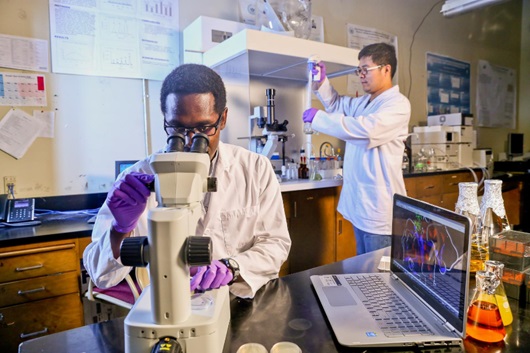 Courtesy of Charles A. Smith/JSU
Courtesy of Charles A. Smith/JSU
Dear Commons Community,
A newly published working paper examines the fallout on science research as relations between the United States and China have deteriorated. This is a sad situation in that both countries have a lot to offer each other that would benefit the entire world. I was part of a group of thirty Americans who visited China in 2001 and again in 2006. We hosted our Chinese counterparts here in the United States in 2003 and 2008. The exchanges of ideas between us were the most stimulating of my career. It is sad to see that this type of cooperation has diminished. Below is a short recap of the paper, courtesy of The Chronicle of Higher Education.
Tony
———————————————-
The Chronicle of Higher Education
July 3, 2024
From: Karin Fischer
Subject: Latitudes: Tensions with China are hurting U.S. science. A new paper explains how
Tensions between the United States and China have disrupted international scientific collaboration, as well as the mobility of graduate students and early-career researchers, and led to reduced productivity among scientists of Chinese descent in America.
A newly published working paper examines the fallout as relations between the two countries deteriorated between 2016 and 2019, and finds that the impact on science is multidimensional: The number of ethnically Chinese international students studying in doctoral programs in the United States dropped by 16 percent, and those who did come were less likely to stay in the United States after they earned their degrees.
Over the same period, Chinese citations of American science declined sharply. And the productivity of researchers of Chinese descent in the United States decreased between 2 and 6 percent, amid growing anti-Chinese sentiment.
“Increasing isolationism and geopolitical tension lead to reduced talent and knowledge flows between the U.S. and China, which are likely to be particularly damaging to international science,” the authors conclude. “The effects on productivity are still small but are likely to only grow as nationalistic and isolationist policies also escalate. The results as a whole strongly suggest the presence of a ‘chilling effect.’”
The paper, published by the National Bureau of Economic Research, was written by Britta Glennon, an assistant professor at the University of Pennsylvania, and Raviv Murciano-Goroff, an assistant professor at Boston University, along with two Ph.D. students, Robert Flynn of BU and Jiusi Xiao of Claremont Graduate University.


